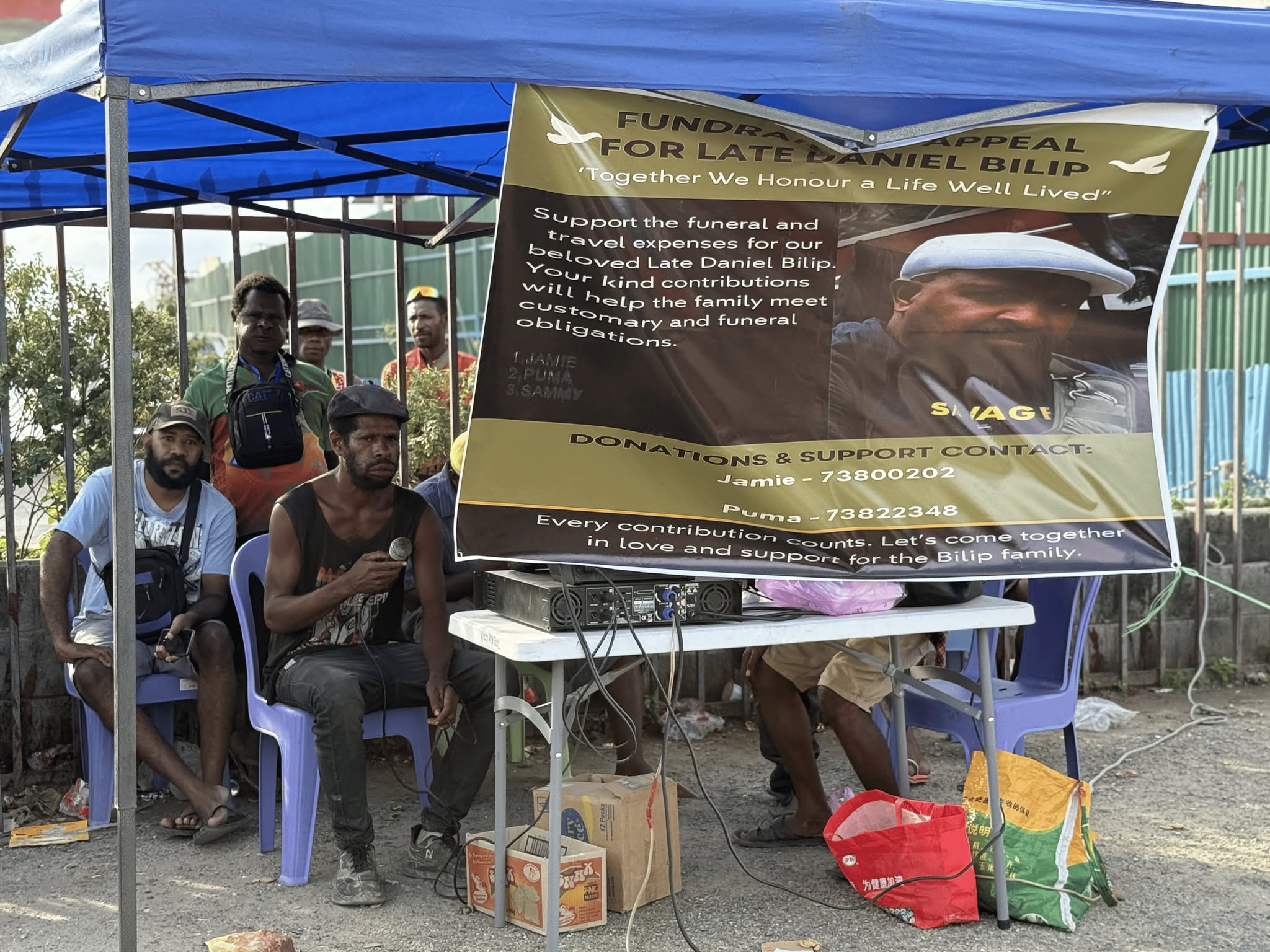
VODAFONE PNG PLEDGES ONGOING SUPPORT FOR NATIONAL SPORTING EXCELLENCE
Vodafone PNG, the major sponsor of the 2025 PNG Sports Hall of Fame, Vodafone PNG, has expressed its...

DPLGA TO FINALLY SETTLE THE PEOPLE OF KADOVAR ISLAND PERMANANTLY
Following the devastating volcanic eruption on January 5, 2018, on Kadovar Island (one of Papua New ...

OFF-DUTY POLICE OFFICER ARRESTED FOR EXTORTING MONEY
An off-duty police officer was arrested at Badili Police Station in Port Moresby city by two police ...

OFFICE OF SPEAKER DISMISSES MALICIOUS RUMOURS REGARDING HIS HEALTH
The Office of the Speaker of the National Parliament, and the office of the Open Member for Manus, u...

DPLGA PRESENTS FOOD RATIONS TO KAUP LANDOWNERS AS A TOKEN OF APPRECIATION
As a token of appreciation, the Department of Provincial and Local Level Government Affairs (DPLGA), on behalf of the Se...

JACOB MARAGAU DECLARED MEMBER-ELECT FOR WARD 5 IN LAE URBAN
Jacob Maragau has been officially declared the member-elect for Ward 5 in the Lae Urban Local Level Government (LLG) ele...

PMJM CHALLENGES OPPOSITION TO PROVE MAJORITY ON FLOOR, NOT STIR PUBLIC TENSION
Prime Minister James Marape has issued a direct challenge to the Opposition, led by member for Ialibu-Pangia Peter O’N...

MEDICAL DRUG SHORTAGES CRIPPLE PATIENT CARE IN MOROBE PROVINCE
A severe shortage of medical drugs and supplies at Angau Memorial Hospital in Lae, is crippling patient care across Moro...

MISUNDERSTANDING LEADS TO WARDENS & BUS OPERATORS CLASH
A misunderstanding early this morning escalated into a physical altercation between city wardens and...

PMGH PROVIDES ONGOING CARE FOR CONJOINED TWINS WITH LIMITED CHANCE OF SURVIVAL
The medical team at the Port Moresby General Hospital overseeing the care of the conjoined twins adm...

PMGH PROVIDES ONGOING CARE FOR CONJOINED TWINS
The medical team at the Port Moresby General Hospital overseeing the care of the conjoined twins adm...

PM MARAPE COMMENDS SEPIK LEADERS FOR UNITY ON FRIEDA RIVER PROJECT
Prime Minister James Marape has commended leaders from West Sepik and East Sepik provinces for their...
SCOREBOARD
| Date | Time | Team | Score | Team |
|---|---|---|---|---|
| Loading... | ||||

DEMETRIOU HAILS KUMULS' DEPTH AFTER VICTORIOUS WIN
The Papua New Guinea (PNG) LNG Kumuls head coach Jason Demetriou remains focused to the future, emph...

COACH KATIVERATA ON ADVERSITY AFTER FIJI BATI'S HEAVY DEFEAT
The Fiji Bati Head Coach Wise Kativerata pointed to a disrupted preparation and a cascade of on-fiel...

FIJI SKIPPER PRAISES "PASSIONATE” PNG CROWD & LOCAL TALENT
The Fiji Bati captain and 2024 Penrith Panthers Premiership winner Sunia Turuva lifted the focus fro...

KUMULS OUTPLAY FIJI BATI FOR PACIFIC BOWL CHAMPIONSHIP
The Papua New Guinea LNG Kumuls displayed a spectacular victory in the 2025 Pacific Bowl Championshi...
Skelim Pilai with E'lle Gore Yasi & Jordan Vela
Subscribe
KENYA CULT DEATH
Kenyan police have exhumed 47 bodies near the coastal town of Malindi, as they investigate a pre...
NZ PILOT'S WEST PAPUAN KIDNAPPERS STILL DEMAND NEGOTIATION
Separatists in Indonesia's Papua region who took a New Zealand pilot hostage in February have to...
FENTANYL- A KILLER DRUG'S TRAIL OF DESTRUCTION
Fentanyl is a deadly, synthetic opioid, 50 times more powerful than heroin. Americans are dying ...
TWITTER TO BE PART OF A PAID SUBSCRIPTION
The New York Times has lost its blue tick on Twitter after it said it would not pay to remain ve...

MAGGI PROMOTION - SPONSORED ARTICLES
Sponsored

SON’S NOODLE CRAVING TURNS INTO MAGGI GOLDEN TICKET WIN
What started as a simple craving for noodles turned into an extraordinary stroke of luck for local b...
Jordan VELA • October 30, 2025Sponsored

DOUBLE BLESSING FOR COSMAS, THE MAGGI GOLDEN TICKET WINNER
It’s a double celebration for Cosmas Koemparea from Pomio District, East New Britain, who has won ...
Jordan VELA • October 17, 2025Sponsored

LEWI BLESSING, 20K MAGGI NOODLES GOLDEN TICKET
Mr. Lewi David, a proud father from the city of Mt Hagen has won the K20,000 Golden Ticket, becoming...
Jordan VELA • September 13, 2025Sponsored

JACK PULLS MAGGI NOODLES 50K GOLDEN TICKET
Perfect timing for Jack Bal! As Papua New Guinea prepares to celebrate its 50th Independence Anniver...
Jordan VELA • September 12, 2025STATION VIDEOS
TOK BLO TOK

CONFIDENCE BOOST FOR JILLIAN
Nineteen-year-old Jillian Gwand, one of the outspoken participants from the 20 young women selected ...

20 SECONDARY SCHOOL GIRLS GRADUATE FROM RISE PROGRAM
Twenty (20) female students from Tokarara Secondary School in the National Capital District proudly ...

PROMOTING PEACE THROUGH STORY TELLING
A newly Australian-funded initiative is now harnessing the power of storytelling to promote peace, e...

CANONIZATION OF SAINT PETER TOROT: A HISTORIC MILESTONE IN PAPAU NEW GUINEA
Papua New Guinea marked a historic milestone on October 19, 2025, when Pope Leo XIV canonized Saint ...


























